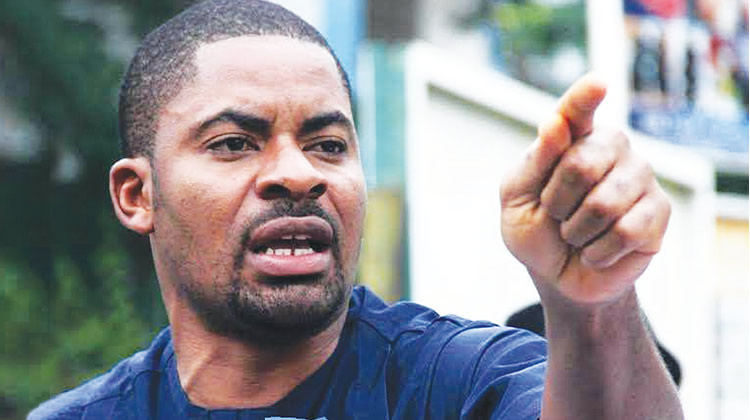Deji Adeyanju, a prominent human rights activist, has articulated his reasons for preferring Bola Tinubu over Peter Obi in a hypothetical 2027 presidential election rematch. His stance, he clarifies, isn’t rooted in allegiance to the ruling All Progressives Congress (APC), but rather in his personal commitment to democratic principles, tolerance, and ethical political conduct. He expresses concern over what he perceives as an intolerant attitude amongst certain supporters of Peter Obi, citing their propensity for online attacks and name-calling directed at those who hold differing political views. This behavior, Adeyanju argues, creates a toxic political environment and undermines the very essence of democratic discourse. He emphasizes that his political choices are guided by his individual assessment of candidates and not by partisan affiliations.
Adeyanju’s critique of Obi’s supporters centers on their alleged tendency to label anyone not aligned with their candidate as an enemy of Nigeria, accusing them of being paid or compromised by the government. He believes this approach stifles constructive criticism and creates an atmosphere of fear and intimidation. He draws attention to the online harassment faced by prominent figures like Joke Silva, who supported Tinubu during the last election, as an example of this intolerance. Adeyanju maintains that such behavior is unacceptable in a democratic society and that individuals should be free to express their political preferences without fear of reprisal.
To further underscore his independence, Adeyanju points to his voting record, which reflects his willingness to support candidates from various parties based on his personal evaluation of their suitability. He cites his past support for Obasanjo, Jonathan, and Sowore as evidence of his non-partisan approach to political decision-making. He argues that his criticism of Obi’s support base stems from a desire to sanitize the political landscape and promote a culture of respect for differing opinions. He emphasizes the importance of unity within the opposition to effectively challenge the ruling APC and warns that a fragmented opposition only benefits the incumbent party.
Adeyanju acknowledges the initial appeal of Obi’s candidacy, particularly the prospect of a president from the South-East region, which has not held the presidency since Nigeria’s independence. However, he explains that his initial enthusiasm waned as the campaign progressed due to observations about the behavior of some Obi supporters. He stresses that his activism is driven by a commitment to defending democracy and free speech, even at personal risk. He recalls instances where he faced arrests and various charges under different administrations due to his advocacy work, demonstrating his willingness to stand up for his beliefs.
He highlights the personal sacrifices he has made in his fight for democratic values, including facing serious accusations such as terrorism charges. He uses these experiences to underscore the authenticity of his concerns and to emphasize that his critique of Obi’s support base is not driven by partisan motivations, but rather by a genuine desire for a more tolerant and respectful political environment. He further states that his expression of these views is simply his right as a Nigerian citizen to engage in issue-based politics, and that his disapproval of aspects of Obi’s movement does not automatically translate into support for the APC.
Adeyanju, therefore, positions his critique of Obi’s support base not as a partisan attack, but as a principled stand against what he views as political extremism. He argues that such behavior, if left unchecked, could undermine the democratic process and create a climate of intolerance. He calls for a more reasoned and respectful approach to political discourse, emphasizing the importance of accepting differing views and engaging in constructive dialogue. He concludes by highlighting the potential consequences of unchecked political extremism, particularly in the context of the recent elections, and reiterates his commitment to promoting a healthy and democratic political landscape in Nigeria.


